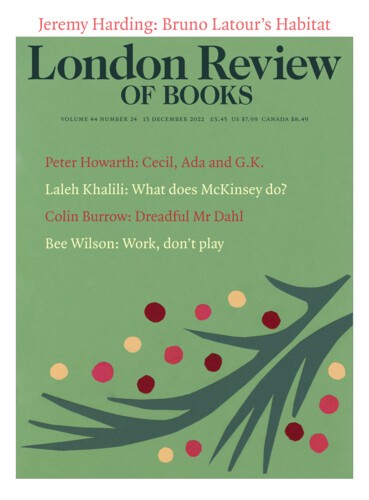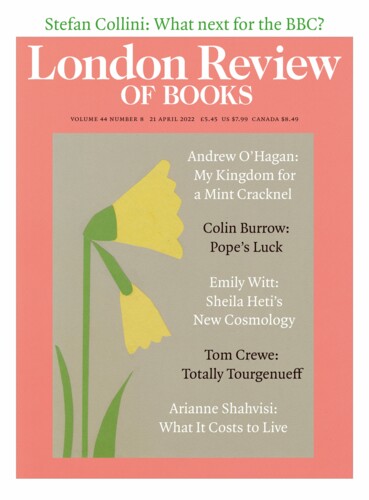The Comeuppance Button: Dreadful Mr Dahl
Colin Burrow, 15 December 2022
Matilda sold half a million copies in its first six months. It isn’t true that half a million people can’t be wrong, as anyone who’s ever scanned the results of an election will know. But Dahl aimed to sell, and his worst writing derived from his aggressively simple-minded view of what children want: ‘They love ghosts. They love the finding of treasure. They love chocolate and toys and money.’ Some do, some don’t, surely?




